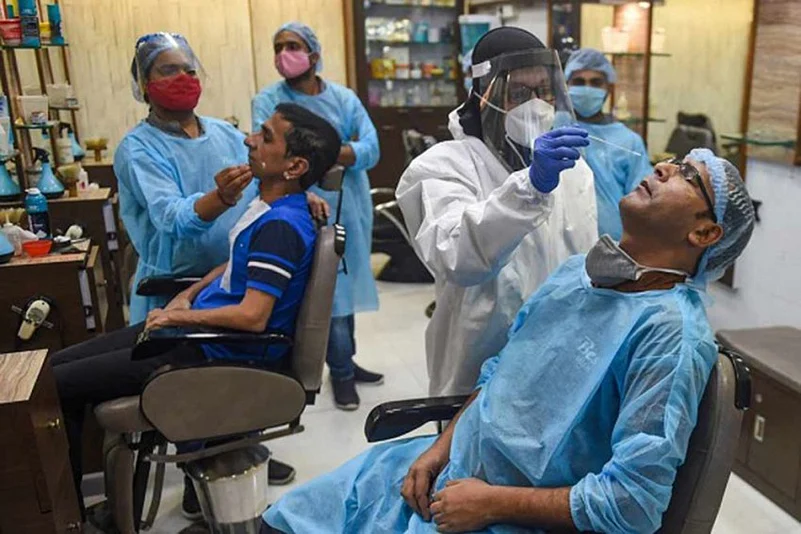Not even a year ago, in March 2020, the World Health Organisation (WHO) declared that the world was facing a pandemic—Covid-19. As countries around the world began to prepare a response, it became clear that while social distancing and mask-wearing would slow the spread of the virus; and therapeutics and drugs would help patients recover, ultimately, only a vaccine would save lives and arrest the unprecedented economic and social disruption caused by the virus. It is at that point when a global quest for a safe and effective vaccine began.
Since the beginning of 2020, WHO has maintained an updated list of Covid-19 vaccine candidates on their website and monitored their progress from the word go the world medical community knew that vaccines take long to develop. Sometimes the process takes even over a decade – because it’s a long, complex and exhaustive one.
Advertisement
First, there are usually pre-clinical trials on animals. Then in phase I, vaccines are given to a small number of volunteers to assess its safety and confirm if the vaccine generates an immune response and to determine the right dosage. In phase II, the volunteer pool is expanded – hundreds of volunteers are monitored for any side effects and data on the impact of the vaccine on disease outcome is collected and compared to participants with same characteristics (such as age and sex) but those who don’t receive the vaccine. But even in this phase, the number of volunteers are not in large enough numbers to have a clear picture of the effect of the vaccine on the disease.
Advertisement
It is only in phase III that vaccine is given to thousands of volunteers (comparing to a placebo) to see if the vaccine is safe and effective against the disease it is designed to protect against. Finally, once the results of clinical trials are available, another series of steps are required, to investigate the efficacy, safety, immunogenicity and manufacturing for regulatory and public health policy approvals, before a vaccine may be introduced into a national immunization programme.
Today, with the use of modern technology, collaboration and synchronised efforts, the development process is significantly reduced. Currently, a number of Covid-19 vaccine candidates: BNT162b2 (BioNTech and Pfizer);mRNA 1273 (Moderna); ChAdOx1 nCoV-19/AZD1222 (University of Oxford, AstraZeneca, and the Serum Institute of India); Sputnik V (Gamaleya Institute)-adv 26/adv 5; CoronaVac(Sinovac); and Covaxin-Inactivated virus vaccine have been approved or are pending approval in India. Some vaccines - NVX-CoV2373 (Novavax), Ad26.COV2.S (Janssen), Ad5-based COVID-19 vaccine (CanSino Biologics), BBIBP-CorV (Sinopharm) – are in late phase studies. In the United States and the United Kingdom – vaccines have been approved under the Emergency Use Authorization.
In India, the decision to vaccinate 30 crore people (1Cr Healthcare staff, 2 Cr Frontline workers, 26 Cr above 50 years, 1 Cr below 50 with morbidities) against the virus was launched last month on January 16th and is now underway. The planning has been carried out at the state, district and block level.
In order to assure robust uptake of vaccines and to tackle vaccine hesitancy – refusal to take vaccines due to misinformation about side-effects) the government has launched a communication campaign to address any misinformation about the vaccine’s side-effects. Further, adverse vaccine effects are being monitored. So far, all pooled data published by various vaccine developers is for more than 75,000 people. This data provides information on again proving safety & immunogenicity. Additionally, there are ongoing Phase III human trials for more than 50,000 people in India.
Advertisement
In a nutshell, all vaccines currently seem good and if provided opportunity then people should get vaccinated.
(The author is a director at Paediatric Haematology Oncology and Bone Marrow Transplantation Institute For Child Health Sir Ganga Ram Hospital and recipient of Dr BC Roy Award Recipient Silver Jubilee Research Award New Delhi. Views expressed are personal)




















